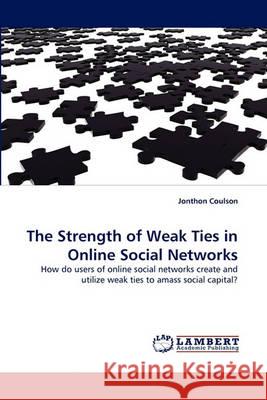The Strength of Weak Ties in Online Social Networks » książka
The Strength of Weak Ties in Online Social Networks
ISBN-13: 9783838369655 / Angielski / Miękka / 2010 / 80 str.
The use of online social networks such as Facebook.com are hypothesized to be affecting Robert Putnams (1995) theory of social capital. The research method is modeled after Dhavan Shahs (2005) Information>Communication>Participation model. This study found that users of these sites tend to have an equal or greater likelihood of engaging in citizen communication or civic participation if they use social networks for informational purposes. Qualitative data indicates that users of online social networks communicate over greater temporal and geographic distances to maintain what Mark Granovetter (1973) calls weak ties. This study gives insight on how information is being shared between digital natives in online social networks, and how such information dissemination leads to the generation of social capital. Future studies focusing on specific features of online social networks that enable communication and civic participation are recommended, as is a comparison between levels of social capital creation between users and non-users of online social networks.











